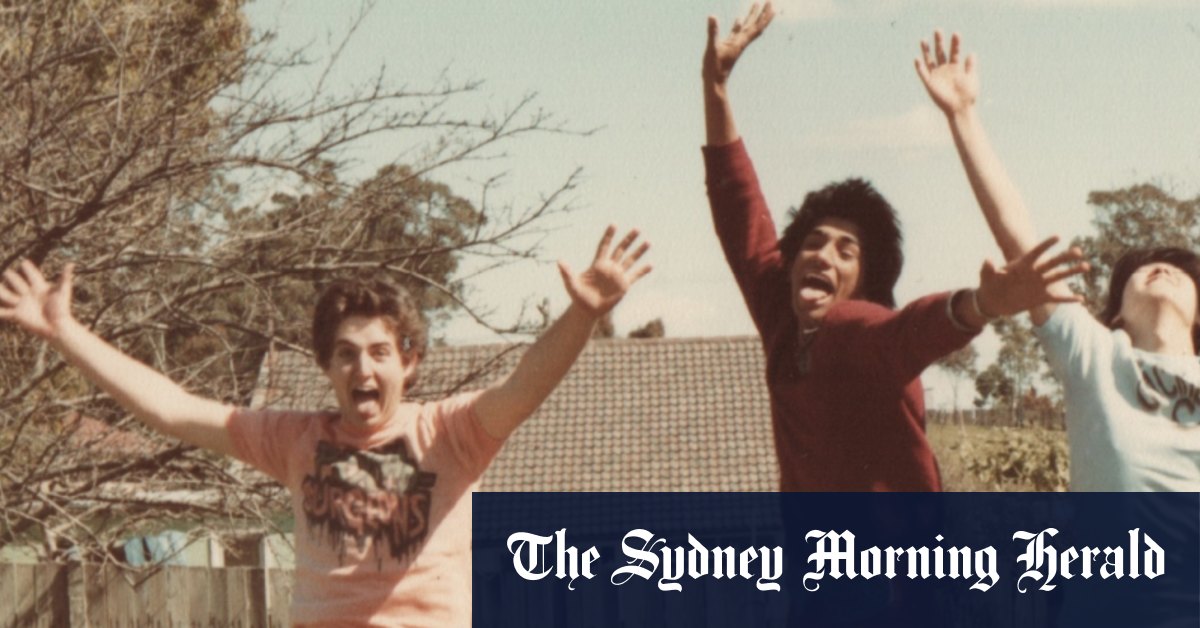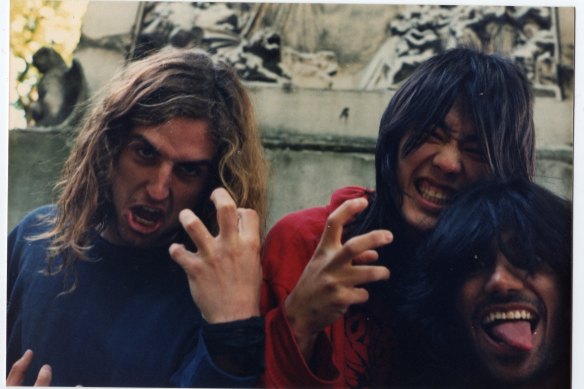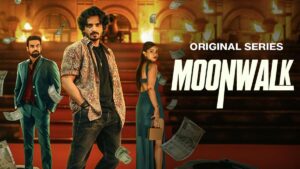
Ahn’s family moved to Australia from Korea in 1974, Black’s family from former Yugoslavia around 10 years earlier and de Silva’s from Sri Lanka in 1975. However, the trio thought nothing of the band’s cultural make-up as it mirrored what they saw growing up in south-west Sydney. Once they started playing inner-city venues in Australia and overseas, however, it quickly became apparent they were outliers.

The three band members met while students at Punchbowl Boys’ High School.Credit:
“There was a lot of shock watching the movie, because I’d forgotten how primitive and primal and unnecessarily hostile things were,” says Ahn, who saw the film for the first time at a cast and crew screening.
“When they touched on the Nazi violence, that took me back. Because it’s not something you talk about every day: ‘Oh, by the way, someone kicked my balls in Ireland.’ I’d forgotten how blasé people were about getting hit. If you do the Heil Hitler salute in public you can go to jail now. But back then, imagine five guys in front of you doing that for the whole gig. We were right in the middle of it because of our skin colour.”
For Sequeira, who grew up watching the Hard-Ons play around Sydney in the late-’80s (“I remember Ray playing the bass behind his head, which was awesome”), capturing that outsider aspect of the band’s trajectory was crucial. So too was his determination that the movie tell a different story from his Radio Birdman documentary.
“The Radio Birdman film kind of sums up all the good and bad of being in a band, what you should and shouldn’t do, so you don’t want to be treading on old ground,” he says. “This is a bit of a sequel in a way – here’s the next generation of underground music culture in Australia. What did the next generation do?”
At one point during the film, Hoodoo Gurus frontman Dave Faulkner insists the Hard-Ons should be in the ARIA Hall Of Fame. While Ahn points out they’ve never even been nominated for an ARIA, the fact he and Black continue to tour and release new music with a line-up consisting of vocalist Tim Rogers (of You Am I fame) and drummer Murray Ruse – Hard-Ons’ 15th album, I Like You A Lot Getting Older, was released this year – is worth more than such accolades.
“You don’t have to pursue things just for the sake of making a career,” says Ahn. “There’s something really noble about art and music and I think we’re proof of it.”
“This is a really important Australian film,” says Sequeira. “It’s showing a slice of Australia people will not see elsewhere, and people on the screen they will not see elsewhere. It’s an Aussie underdog story.”
The Most Australian Band Ever! screens at the Randwick Ritz and Classic Cinema Elsternwick on December 18.



